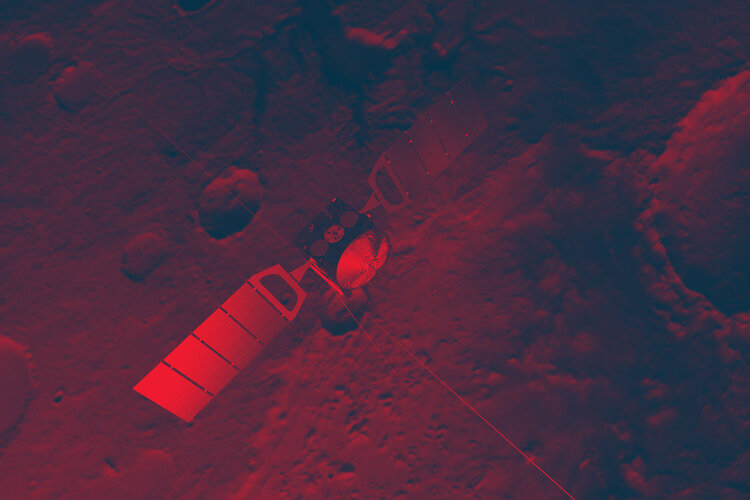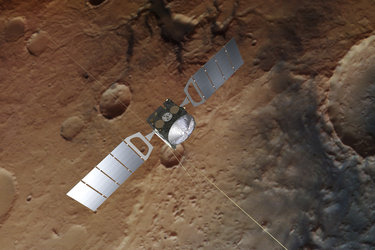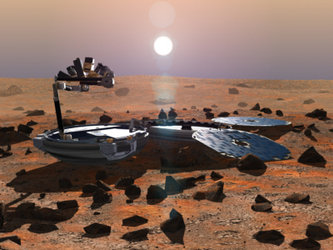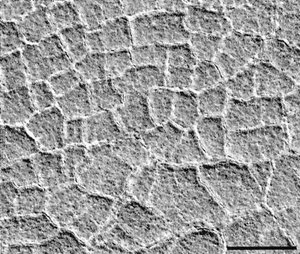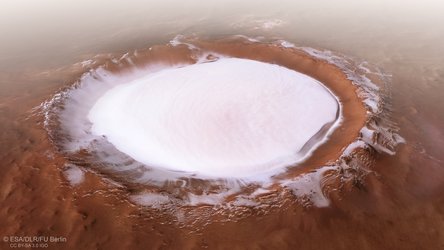Looking into our future: An interview with Jean-Loup Bertaux
Jean-Loup Bertaux is from the Service d'Aeronomie du CNRS at Verrières-le-Buisson in France. With his SPICAM instrument on Mars Express he hopes to build up measurements of ozone and water vapour over the surface of the planet for different seasons.

Jean-Loup Bertaux
Director of Research, Service d'Aeronomie du CNRS
Principal Investigator, SPICAM, Mars Express
Born: January 8, 1942 in Toulouse, France.
He graduated from Ecole Polytechnique in 1963 and has since then worked at Service d’Aéronomie du CNRS, the French space laboratory. He has been involved in many space projects in United States, Russia and with ESA. He proposed the GOMOS instrument on Envisat which has been monitoring ozone in Earth’s atmosphere since March 2002.
He is married to Rosine Lallement, the renowned space physicist, with twin children aged 16. His hobbies are jazz and hiking.
I am full of admiration for the people who are in charge of this stage of the operation at ESOC.
ESA: How do you feel as Mars Express gets so close to its final destination?
Jean-Loup Bertaux
I have to admit that I feel a bit shaky! I am all too aware that there are a large number of failures in the last phase of such a mission – at least two of the last US missions didn’t reach their destinations.
This mission to Mars is a first for ESA and that naturally makes me a little bit nervous. At the same time, I am full of admiration for the people who are in charge of this stage of the operation at European Space Operations Centre in Darmstadt in Germany.
ESA: What most fascinates you about Mars?
Jean-Loup Bertaux
It can help us to understand some fundamental questions about life in the Universe. We know that there are around 200 thousand million stars in the Galaxy, and that about 5% of the Sun-type stars have at least one planet in orbit around it.
That adds up to a lot of potential for these planets supporting life, but nobody knows if they do. We do know that within our Solar System, Earth supports life, but this does not count on a statistical basis because Earth could be unique. However, if we then find that Mars had life at some point too, that dramatically increases the probability that there is life elsewhere.
By going to Mars, we can learn more about our planet’s possible future.
ESA: What is your greatest hope for your experiment on this mission?
Jean-Loup Bertaux
Our experiment will be measuring the ozone and water vapour levels on Mars and checking the theory that where is more water vapour, there is less ozone. This could have vital consequences for Earth, because we have both ozone and very little water vapour in our stratosphere.
With changes in our climate, our water vapour levels could increase drastically and this may be developing a new threat for ozone. On Mars, we can check our theory on the chemistry of water vapour and ozone, and since chemical reactions are the same on both planets, we would thereby learn more about our planet’s possible future.
ESA: How did you first become interested in space science?
Jean-Loup Bertaux
As a youngster, I used to read science fiction novels. Subsequently, when I went on to do space research, I was delighted that you could combine scientific studies with all the excitement of science fiction.
ESA: What advice would you give somebody who wanted to work in space research?
Jean-Loup Bertaux
Work on your basic maths and physics! When you are dealing with space science, you are using the same formulae all the time, and you simply cannot invent them. When you are calculating the angles between the stars and the Sun, for example, the calculations are not sophisticated, but you have to know them!















 Germany
Germany
 Austria
Austria
 Belgium
Belgium
 Denmark
Denmark
 Spain
Spain
 Estonia
Estonia
 Finland
Finland
 France
France
 Greece
Greece
 Hungary
Hungary
 Ireland
Ireland
 Italy
Italy
 Luxembourg
Luxembourg
 Norway
Norway
 The Netherlands
The Netherlands
 Poland
Poland
 Portugal
Portugal
 Czechia
Czechia
 Romania
Romania
 United Kingdom
United Kingdom
 Slovenia
Slovenia
 Sweden
Sweden
 Switzerland
Switzerland


























